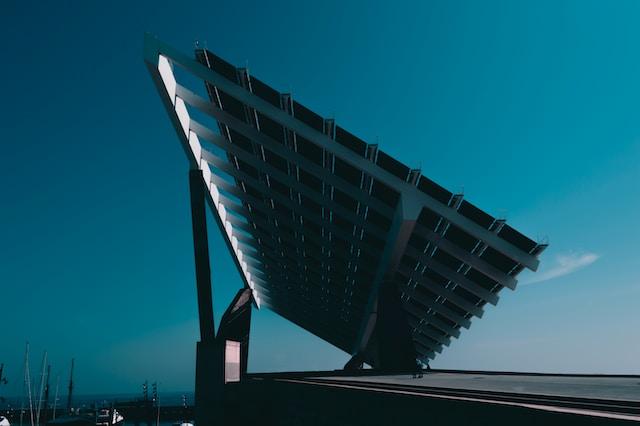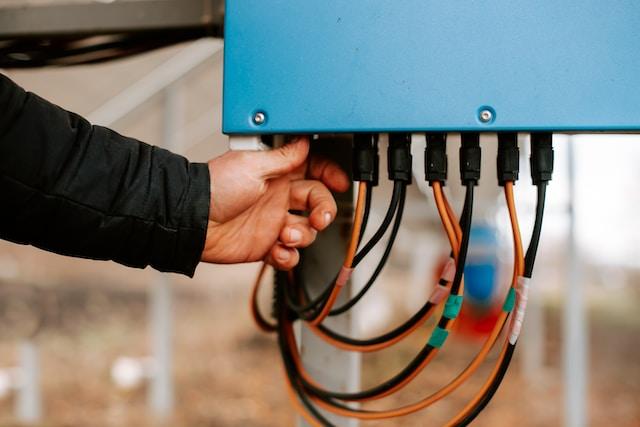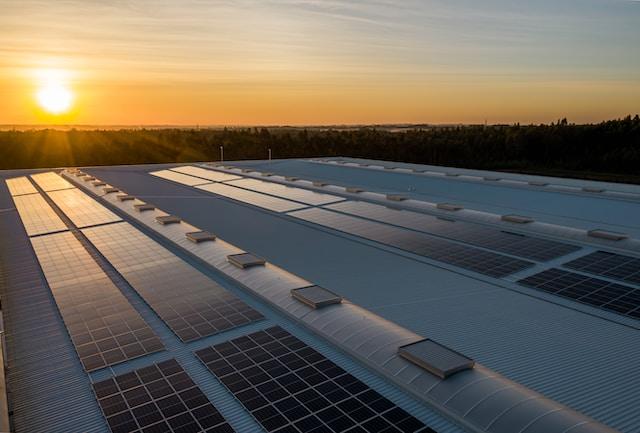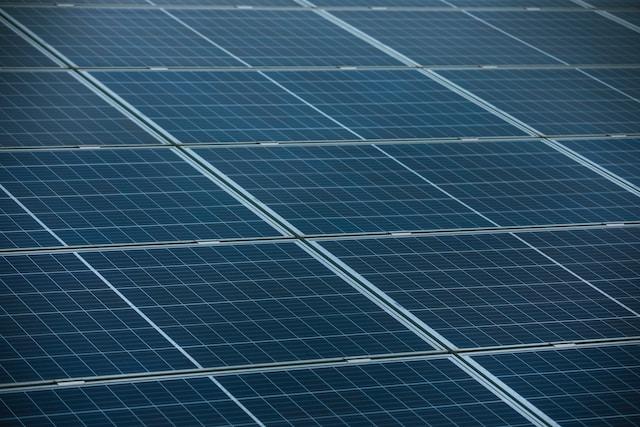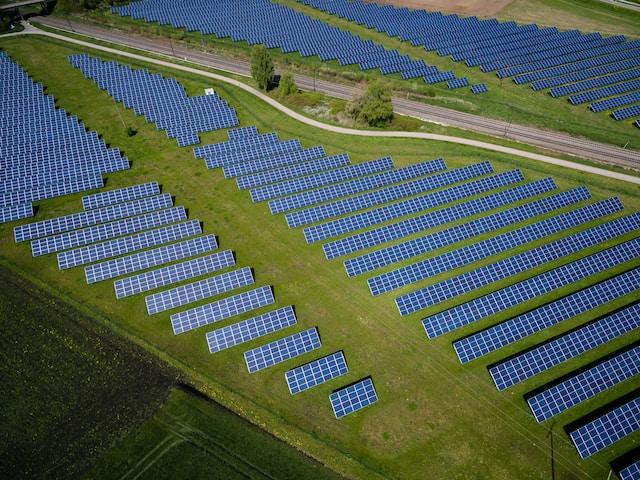
Off-Grid Solar Panel Systems: A Comprehensive Guide for Sustainable Living
Introduction
Welcome to our comprehensive guide on off-grid solar panel systems, an increasingly popular and eco-friendly solution for sustainable living. As the demand for clean energy sources grows, more individuals are seeking information on harnessing the sun's power for their energy needs. This article aims to provide a thorough understanding of off-grid solar systems, their benefits, and how they contribute to a greener future. Discover how these systems offer energy independence, reduce your environmental impact, and explore the various components that make up a successful off-grid solar installation. Join us on this journey towards a sustainable lifestyle powered by solar energy.
What is an Off-Grid Solar Panel System?
An off-grid solar panel system is a standalone power source that allows you to generate electricity directly from the sun, store it in batteries, and utilize it as needed without relying on the traditional electrical grid. These systems provide homeowners and businesses with energy independence and flexibility, as they can function in remote locations or during grid outages. The primary distinction between off-grid and on-grid systems is that on-grid systems are connected to the local utility grid, allowing excess energy to be fed back into the grid for compensation, while off-grid systems solely rely on stored energy for power. There are three main types of off-grid solar systems that cater to different energy requirements and preferences. DC systems utilize direct current electricity, powering devices that run on low voltage, such as LED lights and small electronics. AC systems convert solar energy into alternating current electricity through an inverter, enabling the use of standard household appliances and devices. Hybrid systems combine the advantages of both DC and AC systems by integrating a DC-AC inverter, offering greater flexibility in terms of energy usage and storage. Understanding the differences between these off-grid solar panel systems will help you make informed decisions when designing your own sustainable energy solution, tailored to your specific needs and goals for eco-friendly living.
Benefits of Off-Grid Solar Panel Systems
Off-grid solar panel systems offer a myriad of benefits that make them an attractive choice for those seeking a sustainable and self-sufficient lifestyle. One of the most significant advantages is energy independence, as these systems allow you to produce and store your own electricity, reducing reliance on traditional utility providers and offering greater control over your energy usage. This independence also means a reduced environmental impact, as harnessing solar energy produces no greenhouse gas emissions or pollution, contributing to a cleaner, greener planet. Financial savings are another major perk of off-grid solar systems. Although the initial investment might be substantial, the long-term savings on electricity bills can be significant, with many homeowners recouping their investment within a few years. Additionally, installing an off-grid solar system can increase property value, making it a wise investment for those considering resale in the future. Off-grid solar systems also provide backup power during grid outages, ensuring that you have a reliable source of electricity even in the face of natural disasters or technical issues with the grid. This added layer of security offers peace of mind for homeowners and businesses alike, knowing that their energy needs will be met regardless of external circumstances. Embracing off-grid solar panel systems not only brings tangible financial and practical benefits but also aligns with the growing global movement towards sustainable and environmentally responsible living.
Components of an Off-Grid Solar Panel System
An off-grid solar panel system comprises several key components that work in harmony to efficiently generate, store, and distribute solar energy. The foundation of any solar installation is the solar panels, which convert sunlight into electricity. There are three main types of solar panels: monocrystalline, polycrystalline, and thin-film. Monocrystalline panels are the most efficient, featuring a single crystal structure, while polycrystalline panels contain multiple crystals and offer a more affordable option. Thin-film panels are lightweight and flexible, but typically have lower efficiency rates. The charge controller is another crucial component, responsible for regulating the voltage and current from the solar panels to the battery storage system. This helps protect the batteries from overcharging and ensures optimal charging performance. Battery storage is necessary for off-grid systems to store excess energy generated during the day, allowing for electricity usage at night or during periods of low sunlight. Inverters convert the direct current (DC) electricity produced by solar panels into alternating current (AC), which is compatible with most household appliances and devices. Disconnect switches and safety equipment, such as fuses and circuit breakers, are essential for protecting the system from electrical surges and enabling safe maintenance procedures. Finally, a mounting system securely fastens the solar panels in place, either on rooftops or ground-based structures, ensuring optimal exposure to sunlight for maximum energy generation. Understanding the function of each component is vital for designing, installing, and maintaining an efficient off-grid solar panel system.
Sizing and Designing Your Off-Grid Solar Panel System
When planning an off-grid solar panel system, it is essential to properly size and design the system to meet your specific energy needs. The first step involves assessing your energy consumption by examining your utility bills or using online tools to estimate daily, monthly, and yearly usage. This information will help determine the appropriate size of your solar panel system, ensuring it generates enough electricity to power your home or business. Once you have established your energy requirements, you can calculate the necessary solar panel system size by considering factors such as peak sun hours, system efficiency, and available roof or ground space. This calculation will help you understand how many solar panels and their corresponding wattage are needed to generate the required electricity. Battery storage capacity is another crucial aspect of system design, as it determines how much energy can be stored for use during periods of low sunlight or at night. Properly sizing your battery bank ensures continuous power supply and prevents excessive discharging, which can shorten the battery life. System efficiency considerations include the type and quality of components, the location and angle of solar panels, and the presence of shade or dirt on the panels. These factors can impact the overall performance of your off-grid solar system. Lastly, choosing the right components involves selecting solar panels, inverters, charge controllers, and batteries that match your system requirements, budget, and preferences. By carefully considering all these factors, you can design an efficient and reliable off-grid solar panel system tailored to your unique energy needs.
Installation and Maintenance
The installation and maintenance of your off-grid solar panel system play a crucial role in ensuring its efficiency, safety, and longevity. When it comes to installation, you can choose between professional and DIY approaches. Professional installation is recommended for those with limited technical knowledge or experience, as it ensures proper system setup and compliance with local regulations. However, some homeowners with electrical or construction backgrounds may opt for DIY installation, which can reduce costs and provide a sense of accomplishment. Before commencing installation, it's important to familiarize yourself with permitting and legal requirements, as many jurisdictions mandate permits, inspections, and adherence to specific building codes. This ensures the safety and reliability of your solar system and may be necessary to qualify for incentives and tax credits. Regular maintenance is essential for optimal system performance. Maintenance tasks typically include cleaning solar panels to remove dirt and debris, checking connections and wiring for any signs of wear or corrosion, and monitoring system performance to identify potential issues early. Establishing a maintenance schedule will help you stay on top of these tasks and prolong the life of your off-grid solar system. Finally, troubleshooting common issues is an essential skill for off-grid solar system owners. Familiarize yourself with your system's components and their functions, allowing you to identify and resolve problems that may arise. This proactive approach will save you time and money while ensuring the continued efficiency and reliability of your off-grid solar panel system.
Cost and Financing
The cost and financing options for off-grid solar panel systems are important considerations when deciding to invest in this sustainable energy solution. The overall cost of an off-grid system can vary widely depending on factors such as system size, component quality, and installation method. On average, the price range can be between $15,000 and $50,000 for residential systems, with larger or more complex installations costing more. Incentives and tax credits play a significant role in reducing the initial investment in off-grid solar systems. Federal, state, and local programs often offer rebates, tax breaks, or other incentives that can lower your overall costs. It's essential to research and take advantage of these opportunities, as they can make off-grid solar panel systems more affordable and accessible. Various financing options exist to help make off-grid solar systems more attainable. These may include solar loans, leases, or power purchase agreements (PPAs). Each financing method has its advantages and drawbacks, so carefully evaluate your financial situation and preferences before making a decision. The payback period and return on investment (ROI) are also important factors to consider. Although off-grid solar systems can have substantial upfront costs, the long-term financial savings on electricity bills, increased property value, and potential income from selling excess power can lead to a favorable payback period, often within 5 to 10 years. Ultimately, investing in an off-grid solar panel system is not only an environmentally responsible choice but can also prove to be a wise financial decision.
Case Studies
Examining case studies of off-grid solar panel system installations can offer valuable insights into the real-life benefits and challenges of adopting this sustainable energy solution. Success stories often showcase how off-grid systems have enabled homeowners and businesses to achieve energy independence, reduce their carbon footprint, and save on electricity costs. These examples serve as a testament to the effectiveness of off-grid solar panel systems and their potential to revolutionize the way we power our lives. Lessons learned from real-life experiences can help prospective off-grid solar system owners make informed decisions, avoid common pitfalls, and maximize the efficiency of their installations. These lessons may include the importance of properly sizing and designing the system, choosing the right components, and conducting regular maintenance. Additionally, real-life experiences can highlight the value of working with experienced professionals for installation and support, ensuring that your off-grid solar panel system is set up for success. By exploring case studies and learning from the experiences of others, you can gain a well-rounded understanding of the practical aspects of off-grid solar panel systems. This knowledge will help you navigate the process of implementing your own solar energy solution, empowering you to join the growing community of individuals and businesses reaping the benefits of sustainable, off-grid living.
Conclusion
In conclusion, off-grid solar panel systems provide numerous benefits such as energy independence, eco-friendliness, cost savings, and increased property value. We encourage readers to explore this sustainable solution as an alternative to traditional energy sources. By embracing off-grid solar power, you contribute to the global movement towards renewable energy and a greener future. Take the first step towards sustainable living and join the growing community of individuals and businesses harnessing the sun's power to create a lasting impact on our planet.
Apr 5, 2023
Share:
Fresh off the Press
Continue reading
Newsletter
Your journey towards a sustainable lifestyle starts here!
Join our newsletter for the latest on solar panels and clean energy breakthroughs.

